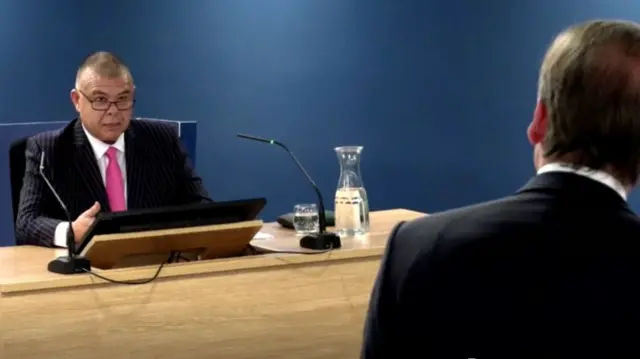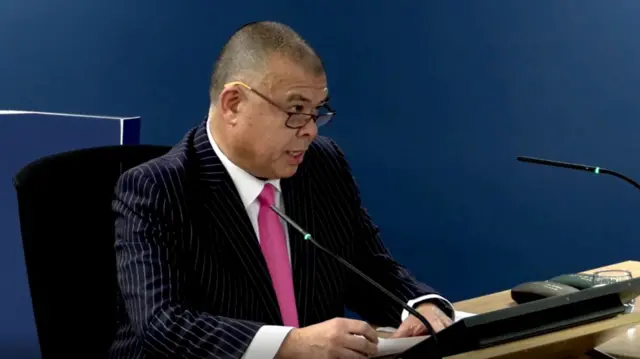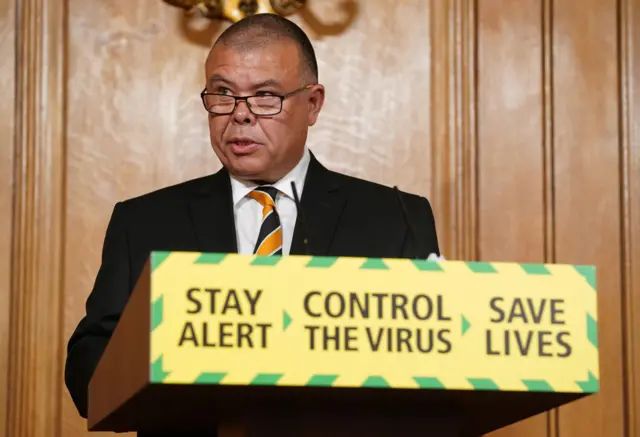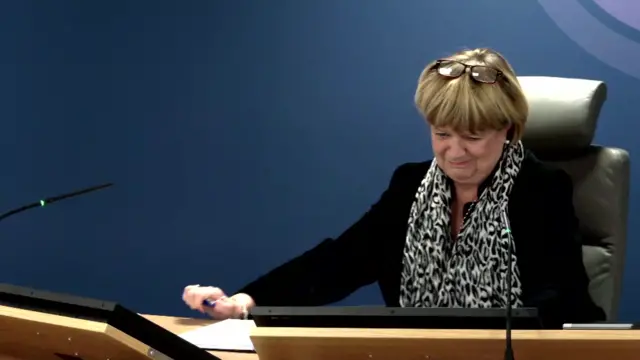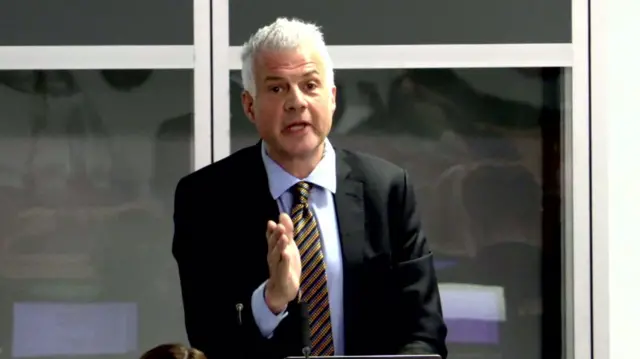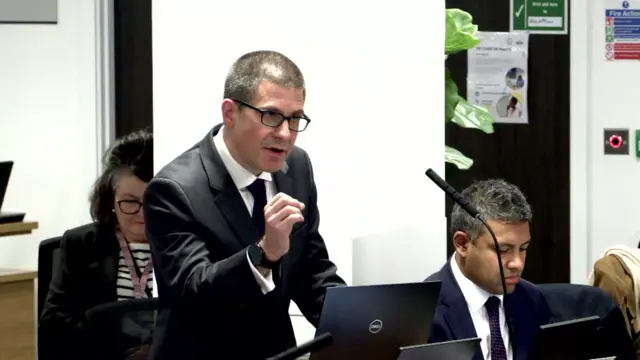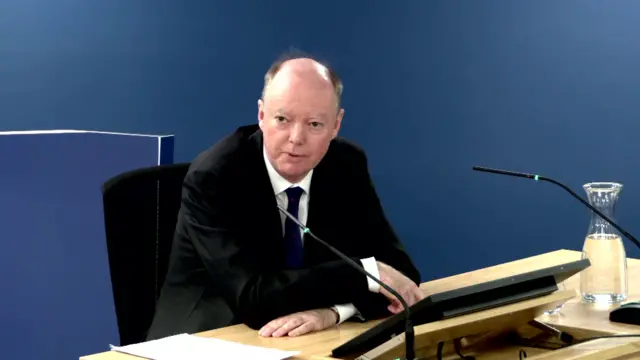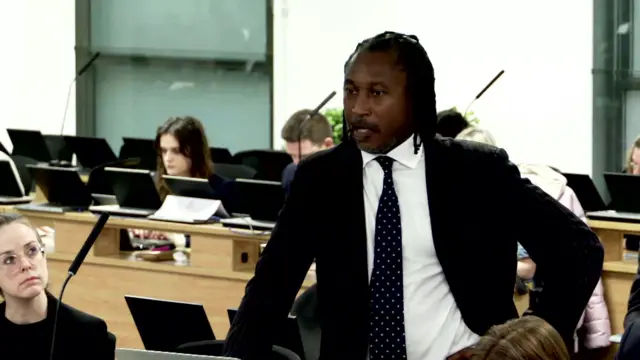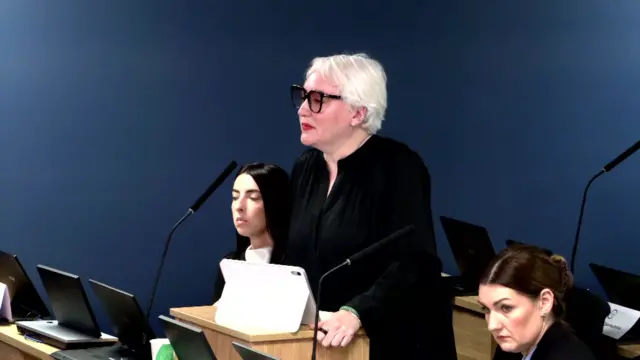Van-Tam recalls speaking to other countries in January 2020published at 14:45 GMT 22 November 2023
The inquiry is now looking back at the very early days of the outbreak, when Covid was first detected in the Chinese city of Wuhan.
Specifically, Keith and Van-Tam are discussing whether or not it was possible to tell at that point, around January 2020, how serious coronavirus would be.
Van-Tam describes co-ordinating with the UK's international partners at the time.
Keith reads out an email sent by Van-Tam in early January 2020, which said there was "no known person-to-person transmission" at the time.
Of course, we later discovered that Covid could absolutely be spread between humans.
